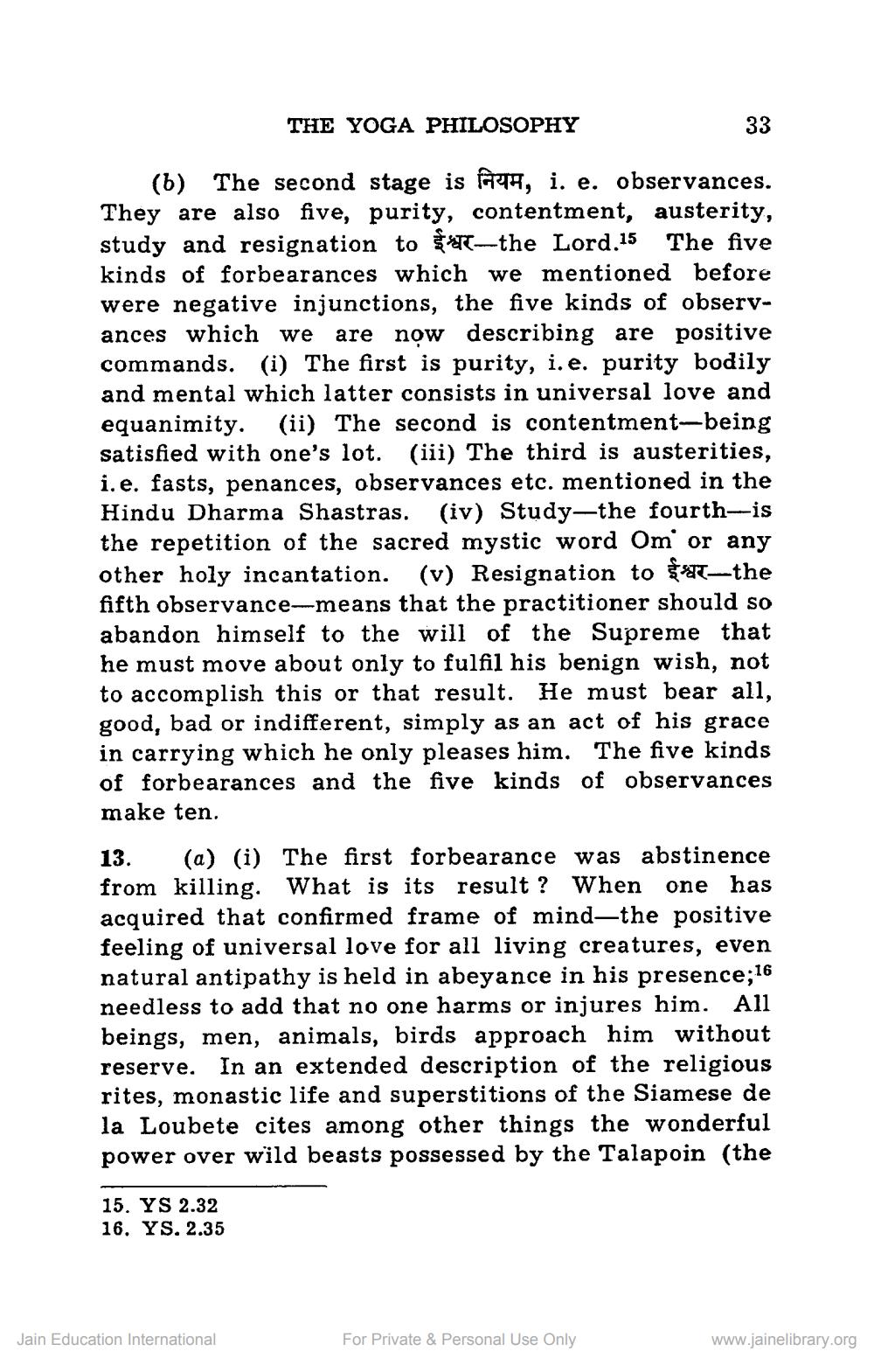________________
THE YOGA PHILOSOPHY
33
(6) The second stage is Aept, i. e. observances. They are also five, purity, contentment, austerity, study and resignation to the Lord.15 The five kinds of forbearances which we mentioned before were negative injunctions, the five kinds of observances which we are now describing are positive commands. (i) The first is purity, i.e. purity bodily and mental which latter consists in universal love and equanimity. (ii) The second is contentment-being satisfied with one's lot. (iii) The third is austerities, i.e. fasts, penances, observances etc. mentioned in the Hindu Dharma Shastras. (iv) Study—the fourth-is the repetition of the sacred mystic word Om' or any other holy incantation. (v) Resignation to $87-the fifth observance-means that the practitioner should so abandon himself to the will of the Supreme that he must move about only to fulfil his benign wish, not to accomplish this or that result. He must bear all, good, bad or indifferent, simply as an act of his grace in carrying which he only pleases him. The five kinds of forbearances and the five kinds of observances make ten. 13. (a) (i) The first forbearance was abstinence from killing. What is its result? When one has acquired that confirmed frame of mind—the positive feeling of universal love for all living creatures, even natural antipathy is held in abeyance in his presence;16 needless to add that no one harms or injures him. All beings, men, animals, birds approach him without reserve. In an extended description of the religious rites, monastic life and superstitions of the Siamese de la Loubete cites among other things the wonderful power over wild beasts possessed by the Talapoin (the
15. YS 2.32 16. YS. 2.35
Jain Education International
For Private & Personal Use Only
www.jainelibrary.org




